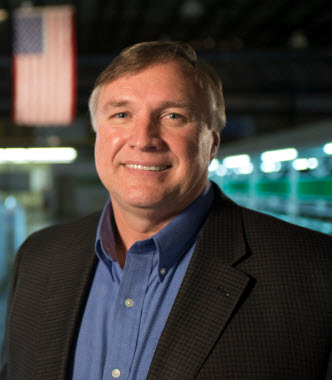Whistleblower lawsuit seeks $10 million from EPB for overbilling claims
Friday, September 5, 2014
Attorneys have unleashed a whistleblower lawsuit alleging that EPB violated Tennessee's False Claims Act by knowingly submitting inflated bills for its streetlights, overbilling Chattanooga taxpayers for an amount that remains in dispute.
Plaintiff Don Lepard, who filed the sealed lawsuit against EPB on behalf of the city and state, is seeking more than $10 million in damages for what he says is an average 27 percent rate of overbilling rate among EPB's 46,000 lights, including nearly 27,000 that belong to the city.
Lepard, owner of Global Green Lighting, is a former contractor for the city who helped replace a third of the city's lights with more efficient LED models. But the city declined to renew his contract, based in part upon billing and maintenance information supplied by EPB that Lepard and City Auditor Stan Sewell have since disputed.
The dispute traces its roots back to EPB's admittedly defective billing and record keeping systems, which caused the utility to erroneously charge city taxpayers to power thousands of lights that had long since been removed from poles or replaced with newer, more efficient lights. EPB claims that while it may have overcharged the city for energy use, it underbilled the city for some of the replacement costs for lights that were installed but not charged to the city.
The lawsuit claims that when Lepard informed EPB about the problem in 2011, the utility began changing its books rather than reimbursing the city for the mistake. Lepard charges that it wasn't until news reports highlighted the billing problems that Mayor Andy Berke ordered the utility to sort out its books that the utility began acknowledging that it had overbilled taxpayers.
EPB, for its part, initially denied that any overbilling had taken place, though the utility later said it would pay for any overages if any were found. The utility commissioned independent firm Mauldin & Jenkins to produce a series of audit-style reports, which have progressively moved closer to acknowledging some of Lepard's claims as each was challenged by the city auditor.
However, the utility has also introduced new claims of its own which it says largely offset the admitted overbilling, though both Lepard and the office of internal audit have challenged those claims.
Lepard was first brought into EPB's world in 2011 when the city paid him to replace the lights at Coolidge Park with brighter, LED lights in order to combat what was then a wave of nighttime youth violence. After the success of that program, the city contracted with Lepard to replace all 27,000 of the city's streetlights with his advanced lights, which use less power, include a meter and can be controlled and monitored remotely.
That's when the trouble started. Lepard based the claimed power savings of his lights on EPB's published list of existing lights. But he found that the lights he was taking down were not the same lights listed on EPB's map.
"Mr. Lepard was not looking for evidence of false claims or overbilling, but needed to understand the EPB billings and power consumption numbers in order to demonstrate the power savings his system was achieving," the lawsuit states.
As proof that EPB had been billing the city for high-wattage lights while actually installing and maintaining low-wattage lights, Lepard began storing the old lights in his warehouse.
He contacted the city. He met with EPB officials. But it was not until January 2013 that Lepard claims "EPB began, very discreetly, a process of changing some of the billing data by reporting significant changes in the lights for which billing was made."
When EPB was questioned about its changing assertions, spokesman John Pless said officials were not aware of the extent of the utility's problems when they originally denied accusations of overbilling.
"Our original assertion was based on how our processes were supposed to be working," Pless said. "This is a very complex analysis with many variables. We are providing the city with the information they need to resolve this complex issue and we will comply with their determination."
The lawsuit, which was initially filed agiainst the city on July 3, has been sealed until this morning.
Read more in tomorrow's Times Free Press.

